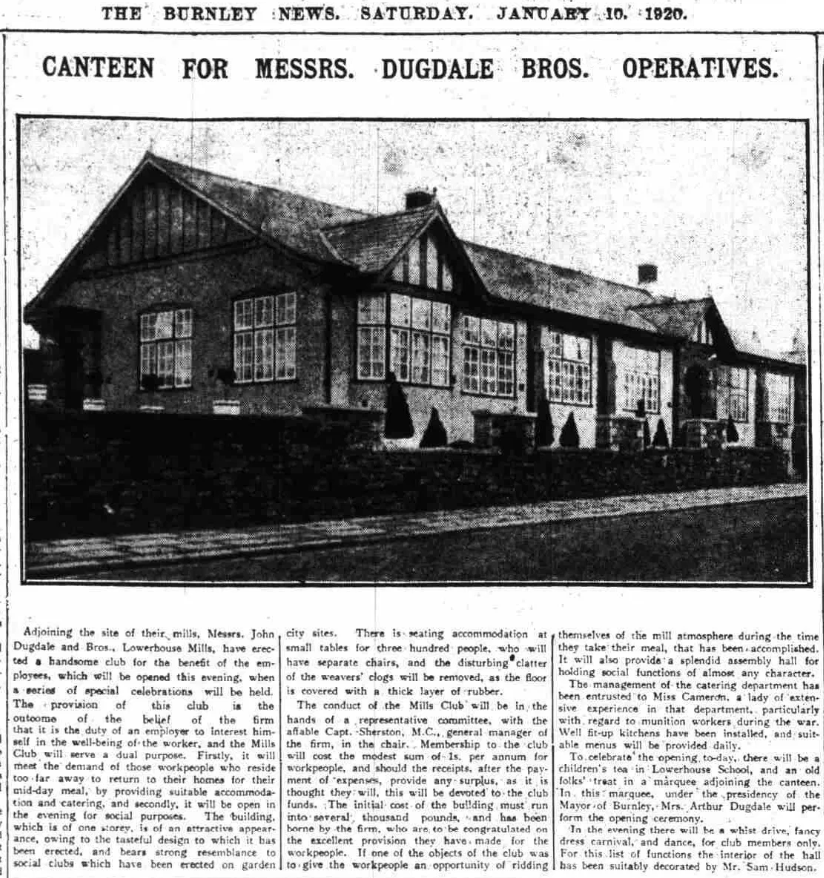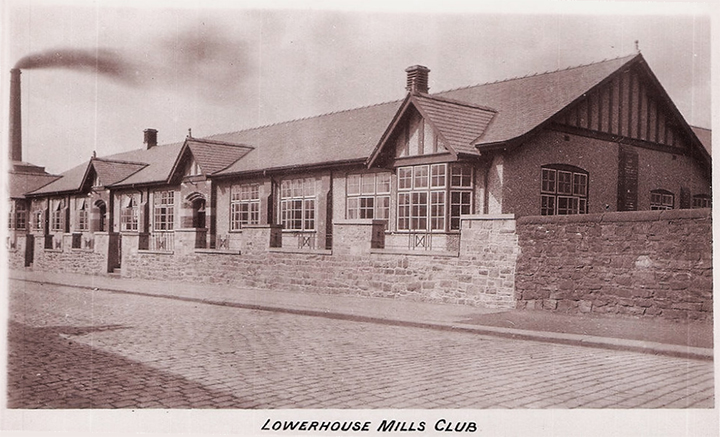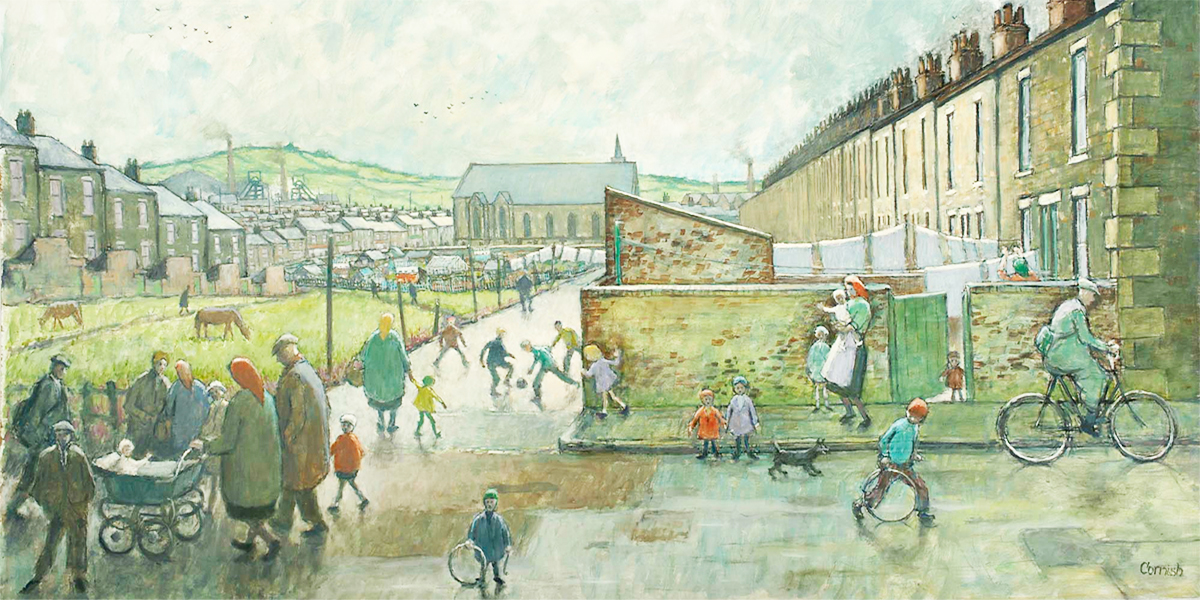 Lowerhouse Mile - Environment
Lowerhouse Mile - Environment 
(Page 1 of 4)
Social Environment
With the advent of mass production in the 1800's, Lancashire workers personal circumstances actually began to suffer.
As machines took over the work of humans, traditional jobs were lost or downgraded, and many skilled artisans became factory or mill workers.
i.e. (the de-skilling process). Emma Heslewood, Keeper of History at the Harris Museum in Preston has been quoted as saying, "Back then, pubs offered more
than just beer, they were friendly places for people to meet and get warm, as living conditions then were cramped and cold, so going to the pub was a very
attractive proposition." Ironically, this could have had some bearing on the reasoning behind the Dugdale's decision to build an appropriate social premises
for their workers.
Lowerhouse Canteen
The following newspaper articles are from the Burnley News & Burnley Express of the same date, about the formation of a mill social club, named “Lowerhouse Canteen".

News Article 1
Adjoining the site of their mills, Messrs, John Dugdale & Bros., Lowerhouse, have erected a handsome club for the benefit of the employees, which will
be opened this evening, when a series of special celebrations will be held. The provision of this club is the outcome of the belief of the firm that it
is the duty of an employer to interest himself in the well-being of the worker, and the club will serve a dual purpose.
Firstly, it will meet the demand of those worker people who reside too far away to return to their homes for their midday meal, by providing suitable accommodation and catering , and secondly, it will be open in the evening for social purposes. The building which is of one storey, is of an attractive appearance owing to its tasteful design to which it has been erected, and bears a strong resemblance to social clubs which have been erected on garden city sites. There is seating accommodation at tables for three hundred people who will have separate chairs, and the disturbing clatter of the weavers clogs will be removed as the floor is covered in thick rubber.
The conduct of the ‘Mills Club’ will be in the hands of the representative committee with the affable Capt. Sherston M.C. general manager of the firm in the chair. Membership to the club will cost the modest sum of one 1s per annum, for workpeople, and should the receipts, after the payment of expenses provide any surplus, as it is thought they will, these will be devoted to the club funds.
The initial cost of the building must run into several thousand pounds, and has been borne by the firm, who are to be congratulated on the excellent provision they have made for the work people. If one of the objects of the club was to give the workpeople the opportunity of ridding themselves of the mill atmosphere during the time they take their meal, that has been accomplished.
It will also provide a splendid assembly hall for holding social functions of almost any character. The management of catering has been entrusted to Miss Cameron, a lady of extensive experience in that department particularly with regard to munition workers during the war. Well fitted kitchens have been installed, and suitable menu’s will be provided daily. To celebrate the opening today, there will be a children’s tea in Lowerhouse School, and an old folks treat in a marquee adjoining the canteen. In this marquee, under the presidency of the Mayor of Burnley, Mrs Arthur Dugdale will perform the opening ceremony. In the evening there will be a whist drive, fancy dress carnival, and dance, for club members only. For this list of functions the interior of the hall has been decorated by Mr Sam Hudson. ( Burnley News: 10 January 1920)

News Article 2
"An interesting departure has been made at Lowerhouse from the ordinary procedure in the provision of facilities for obtaining beer at meal times.
This has been done by a nucleus of the workers forming themselves into a properly constituted club, and the club has obtained permission from
the authorities for the sale of beer, stout etc. No member may obtain more than one drink at any meal time, and we understand that this rule is to
be rigidly enforced by the club committee.
This interesting development in canteen working must be regarded as largely experimental but it is believed that members should they wish, ought to
be able to get a drink at meal times and after work. By leaving the management of the club in the hands of a representative committee, it is hoped to
ensure that the place will be run properly on fully approved lines. Everything possible is being done to make the club one to which its members may
feel proud to belong. By virtue of the club constitution, opportunity is afforded in the evenings for the building to be used as a meeting place for
the members for social intercourse, and games."
( Burnley Express: 10 January 1920)



